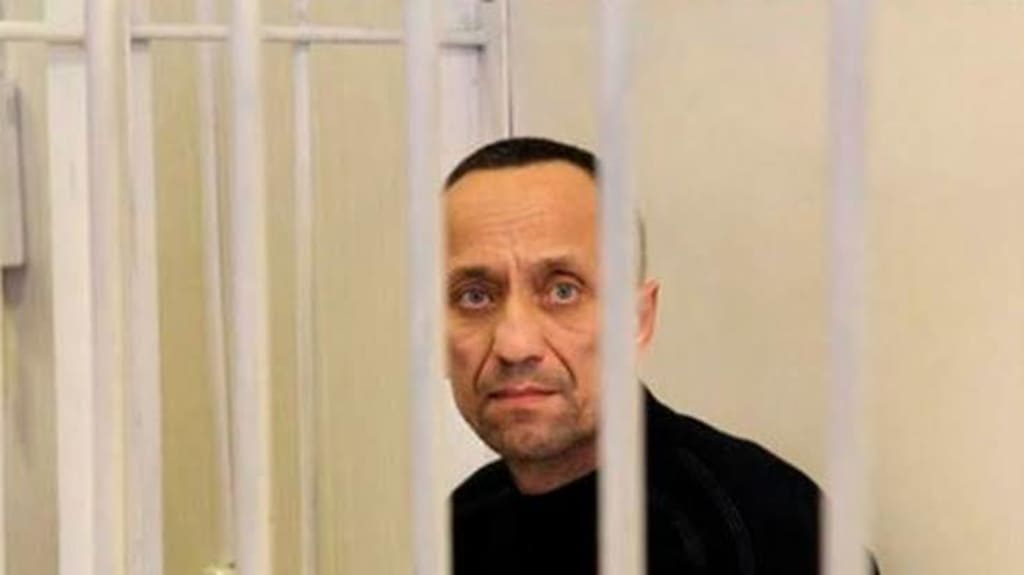"Ruthless "Werewolf" Killer"
Mikhail Popkov, known as "The Werewolf," was a Russian ex-police officer who committed a series of brutal murders in Siberia over a decade.

Mikhail Popkov, infamously known as The Werewolf is a former Russian police officer turned serial killer who terrorized Siberia with a reign of brutality that lasted over a decade. His heinous crimes shocked the world and earned him the moniker "The Werewolf" due to the ferocity and frequency of his attacks. Popkov's case serves as a grim reminder of the capacity for darkness that exists within the human psyche. Born on March 7, 1964, in Angarsk, Russia, Popkov grew up in a working-class family. He joined the police force in the late 1980s, a career that ironically granted him access to both knowledge of investigative techniques and intimate knowledge of the local area, which he later exploited to evade capture. His murder spree began in the late 1990s and continued until his eventual arrest in 2012.
Popkov's modus operandi involved targeting women, predominantly prostitutes and those he deemed as engaging in "immoral behavior." He lured his victims into his car under the guise of offering them a ride home, only to then brutally assault, rape, and murder them. In some cases, he would dismember their bodies, further amplifying the horror of his actions. Popkov's extensive knowledge of police procedures allowed him to avoid detection for years, as he knew how to manipulate crime scenes and minimize evidence that could potentially link him to the murders. The investigation into Popkov's crimes proved challenging for law enforcement due to the geographical expanse of his attacks, which spanned multiple towns and cities in Siberia. As the body count rose, fear gripped the communities he targeted, leading to increased pressure on investigators to apprehend the elusive killer. In 2012 a breakthrough came when advances in forensic technology enabled police to match DNA evidence from the crime scenes to Popkov's own DNA. This breakthrough finally led to his arrest.In 2015, Mikhail Popkov was convicted of 22 murders and sentenced to life in prison. However, his chilling confession shocked authorities and the public alike, as he claimed to have killed as many as 81 women. This staggering number would make him one of the most prolific serial killers in history. His motives appeared to stem from a twisted sense of moral righteousness, as he believed he was cleansing society of those he deemed morally impure.
The trial shed light on the extent of Popkov's depravity, as survivors and families of victims shared harrowing accounts of his sadistic violence. The courtroom proceedings served as a grim reminder of the lasting impact of his actions on the lives of countless individuals. The case also exposed flaws within the Russian police system, highlighting the need for improved oversight and accountability to prevent such atrocities from occurring in the future.Mikhail Popkov's case raises unsettling questions about the nature of evil and the potential for individuals to commit unspeakable acts, even those who were once entrusted with upholding the law. His moniker, "The Werewolf," captures the terrifying duality of his personality—a man who, by day, was a husband, father, and police officer, while by night, he transformed into a remorseless predator. The case also underscores the critical role of forensic science and advancements in technology in the pursuit of justice.In conclusion, the story of Mikhail Popkov, "The Werewolf," is a chilling tale of a man who used his position of authority to commit a series of heinous crimes. His calculated brutality spanning over a decade, shocked the world and left a lasting scar on the communities he terrorized. While he may be behind bars, the trauma he inflicted on his victims and their families lingers on, serving as a haunting reminder of the darkness that can reside within the human soul.





Comments
There are no comments for this story
Be the first to respond and start the conversation.